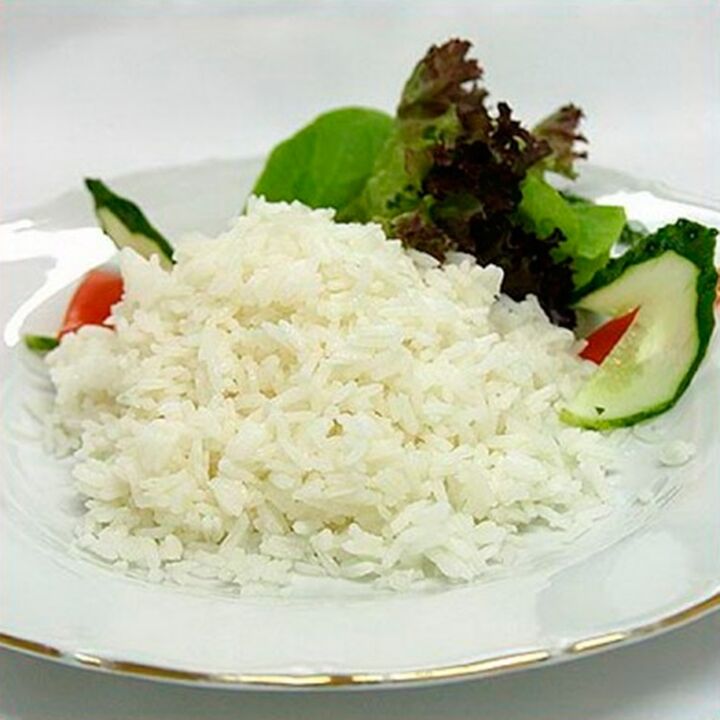
The fourteen-day Japanese diet is suitable for people who want to lose weight very quickly, but the cost of such "taste" is very high. This diet is rightly considered one of the strictest and strictest. And this means that by observing this, you will have to abandon your usual diet and eliminate most products from your daily diet.
Why does the Japanese diet work? In this case, the diet is designed to maintain a person's normal physical condition, but also helps to accelerate metabolic processes in the body and convert fat into energy, or in other words, burn it. o.
By the way, no one can answer why the diet is specifically called Japanese, because it does not involve the use of rice or seafood, which is part of the daily diet of the Japanese.
The differences between the 14-day and 7-day Japanese diets are insignificant at first glance. Both eliminate the use of carbohydrate-rich foods. A fourteen-day diet to lose weight gives the best effect, but it is doubly difficult to live 14 days without your favorite breads and cakes. Remember that with the help of any Japanese diet you can lose weight no more than once a year. Otherwise, it can lead to deterioration of your health.
Japanese diet products are 14 days
List of foods banned by the 14-day Japanese diet:
- any alcoholic beverages;
- salt, sugar, spices, seasonings;
- smoked meat, fatty meat, fish;
- marinades;
- black tea, cream;
- processed cheese, butter;
- any animal fat;
- baking, dough, bread (you can use a small amount of crackers several times a week);
- sweet carbonated drinks.
List of foods allowed by the 14-day Japanese diet:
- black ground coffee;
- any fruits, vegetables: cabbage, carrots, zucchini, tomatoes, cucumbers, lettuce, parsley;
- chicken eggs;
- vegetable oil (sunflower, mustard, olive, etc. );
- lean meat, fish (it is better to boil or steam, you can fry in sunflower oil once a week to change);
- nonfat kefir;
- mineral water, fruit juices, green tea. The amount of fluid consumed per day should not be less than 2 liters.
It is not recommended to change the products listed in the diet menu every day, because this diet is designed for a reason. Also, do not cut your diet for a day or two.
Pros and cons of the Japanese diet for 14 days
Advantages of the Japanese diet for 14 days:
- almost 100% weight loss results (up to 9 kg in 2 weeks);
- lost weight does not return in future years;
- complete abstinence from food, hunger is not expected;
- Helps eliminate edema and remove unnecessary harmful substances from the body.
Now for the shortcomings. The Japanese diet, which must be followed for 14 days, often leads to a deterioration in well-being. Acceleration of metabolism, low-calorie diet, of course, can not bypass the body. Usually women try to lose weight this way.
Many who have tried the effects of weight loss admit that in the first days of the diet, they feel very hungry and do not leave them even after eating. About half of the women who lost weight using the 14-day Japanese diet reported a sharp deterioration in their health after two weeks of dietary changes, and some diseases worsened. Therefore, it is still recommended to visit a doctor and undergo a medical examination of the body before starting to lose weight. Against the background of a two-week change in diet, gastritis is unlikely to occur, but this time it is enough to worsen the inflammation of the gastric mucosa.
You should not follow the Japanese diet for people with high blood sugar, thyroid disease, cardiovascular disease. Some foods prescribed by this diet can also be harmful. For example, starting the day with a cup of strong coffee should not be for those who often suffer from high blood pressure, gastritis or peptic ulcer.
If the diet is accompanied by alarming symptoms, the diet should be abandoned: dizziness, fainting, anorexia, pain of varying intensity in the stomach and intestines, nausea, stool changes, headache.
It is very difficult for a person who spends most of the day away from home to stick to a certain diet. Agree, sometimes at work there is not even a minute of free time for a snack, we talk about food for an hour. Therefore, it is better to choose a vacation time to lose weight with this diet.
In this situation, housewives are easier. But if you do not live alone, you must remember that for 14 days you will also have to cook ordinary household meals (they do not lose weight! ) Or, in extreme cases, to participate in its preparation, which is very difficult. . If you have already decided to lose weight this way, then gather your patience and will.
It is important to get off the diet properly after the 14-day period. You should not immediately rely on foods rich in calories, you can treat yourself to something sweet (a small part of it). With malnutrition, once the diet is over, some of the excess weight will return, and it's pretty early.
If the Japanese diet seems too heavy for you, keep in mind that there are people who voluntarily refuse to eat large amounts, eat only vegetables, fruits and grains (vegans, raw foods, fruit growers), feel great and do not. presence of health problems. If a person likes to eat only plant foods without any worries, then you can keep a low-calorie diet for only 2 weeks.





















